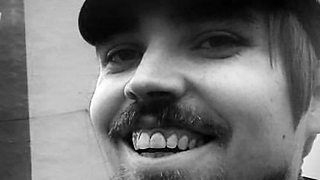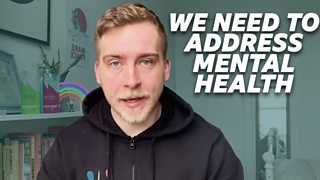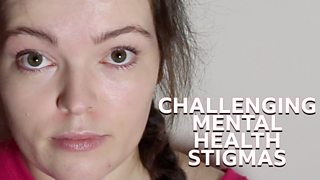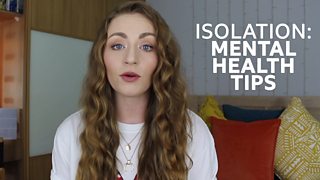Mania, smiles, tears, confusion and perpetual self doubt – being a creative with manic depression
By Danny Carr // Βι¶ΉΤΌΕΔ The Social contributor // 27 July 2021
Warning - this article contains references that some people may find upsetting.
For as long as I can remember, I knew I wanted to be in the creative world, I wanted to be ‘Danny Carr, the great writer.’ In school, the only class I actually excelled in, was English and I loved writing wee stories.
I hated most of my classes and most of my teachers thought I was a clown, (the feeling was mutual). I couldn’t wait to leave, so I knew when I dropped out of school at fifteen, I knew that I wanted to go to college to study filmmaking.
It wasn’t long after I turned eighteen and I had just begun my second year of film and TV production at college, when I was diagnosed a ‘Manic Depressive’ (which is now an out-dated term, with bi-polar replacing it). I had no real idea how it would affect me in my personal life as well as my prospective media career.
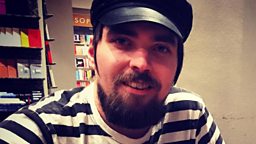
At first, I tried to own my new diagnosis like a pair of new shoes. I’ve always been a little kooky, so I didn’t take into account how much it may affect my creative life. I felt unsure if it would be a pro or a con?
I wondered if it would actually change anything at all if I’ve had it all this time? There's a stereotype that madness and creativity go hand in hand, “Is this true?” I wondered to my younger self. In short, my answer is no, actually aye, well maybe sometimes…
The diagnosis wasn’t a complete shock, as I had experienced depression when I was fourteen after my great grandad died a slow, painful death. I think that was the first time I had ever felt real depression and looking back on my life, the death of my grandad seemed to be the first seed of the darkness that is depression.
I live a life of extreme highs and extreme lows, very little middle ground. I don’t even know what a middle ground feels like, is it any good? Has it a smell?
Around the same time I was also diagnosed with epilepsy, which didn’t help matters. I sometimes think that depression is somewhat universal - at some point in life, I think most people will go through a bad bout.
A week after my diagnosis I was put on my first anti-depressants, then a week after that ironically my father killed himself. That was a huge blow to me, I remember feeling numb for a while, then I took a breakdown. I recall one night, my ex-partner woke up, only to find me crying as I repeatedly listened to Roy Orbison’s song ‘In Dreams’, one of my father’s funeral songs. That seed that was planted after my Granda’s death had most defiantly blossomed by then. What a laugh this article is turning out to be…
Personal life aside, how does manic depression affect my creative life? Sometimes I love the thrill of being on a manic high, with delusions of grandeur and genuine bursts of creative spells. While I’m on a high I find myself ready to take on the world, every idea is a great one, every hurdle is easy to jump, no task is too big!
Sometimes while I’m on a high I ask my friends to give me some of their work to do, only to find myself regretting it a week later. Although it can have its good points, being manic is overall a troubling disappointment. I live a life of extreme highs and extreme lows, very little middle ground. I don’t even know what a middle ground feels like, is it any good? Has it a smell?
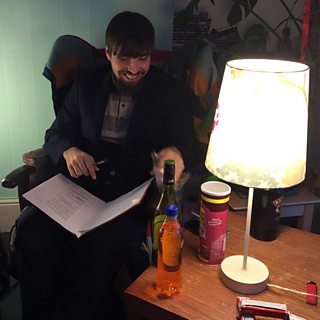
Ten years on, I got my break and managed to become what I had always wanted. A paid comedy sketch creator, and lately I have noticed my manic depression interfering with my creative life more than usual. Over the years, I had many a night where I would become a weirdo to myself and my suffering partners and family. I would often find myself crying for no apparent reason, no motivation, not wanting to be dead, but wishing I wasn’t ever born.
This was how my life has been for over a decade now. But recently I’ve found my depression creep into my creative work more than it once did.
When I first release a comedy sketch online, I watch the view count rise and rise, and the buzz is electric. If the sketch ends up with a good view count, all of a sudden, I freak out and lose my motivation to make another sketch (the difficult second album).
I feel this flood of fear, fear that my next sketch will be a huge letdown, the next sketch will only disappoint fans of the last one, so what’s the point? Just blank it, never write, nor appear in a sketch ever, ever again! I will never live up to my last triumph. This fearful mindset leads me to sometimes go months without writing, I get too down with anxiety to bother.
Paradoxically, I become even more down because I haven’t made any sketches for a while. It’s a sort of catch 22 that doesn’t stop. With this illness I feel I often know exactly what I’m wanting to do, but I just don’t know if I want to do it.
Near the end of 2020, I had two written sketches. I was ready to make them, then my auld foe depression visited again and managed to talk me out of making either of them. I took another nosedive and couldn’t even imagine making them, and sadly, I didn’t. I had them in the bag then I opened that bag and dumped the contents down the toilet.
Though this explanation can feel a bit doom and gloom, I am making it work. I am still pursuing my dreams and working in an industry that I feel passionate about. I would say to anyone dealing with their own manic creativity, you can use it to your advantage and be a creative powerhouse. That way, you have something on the back burner you can use for when your bad friend shows up again for another unsolicited visit.
